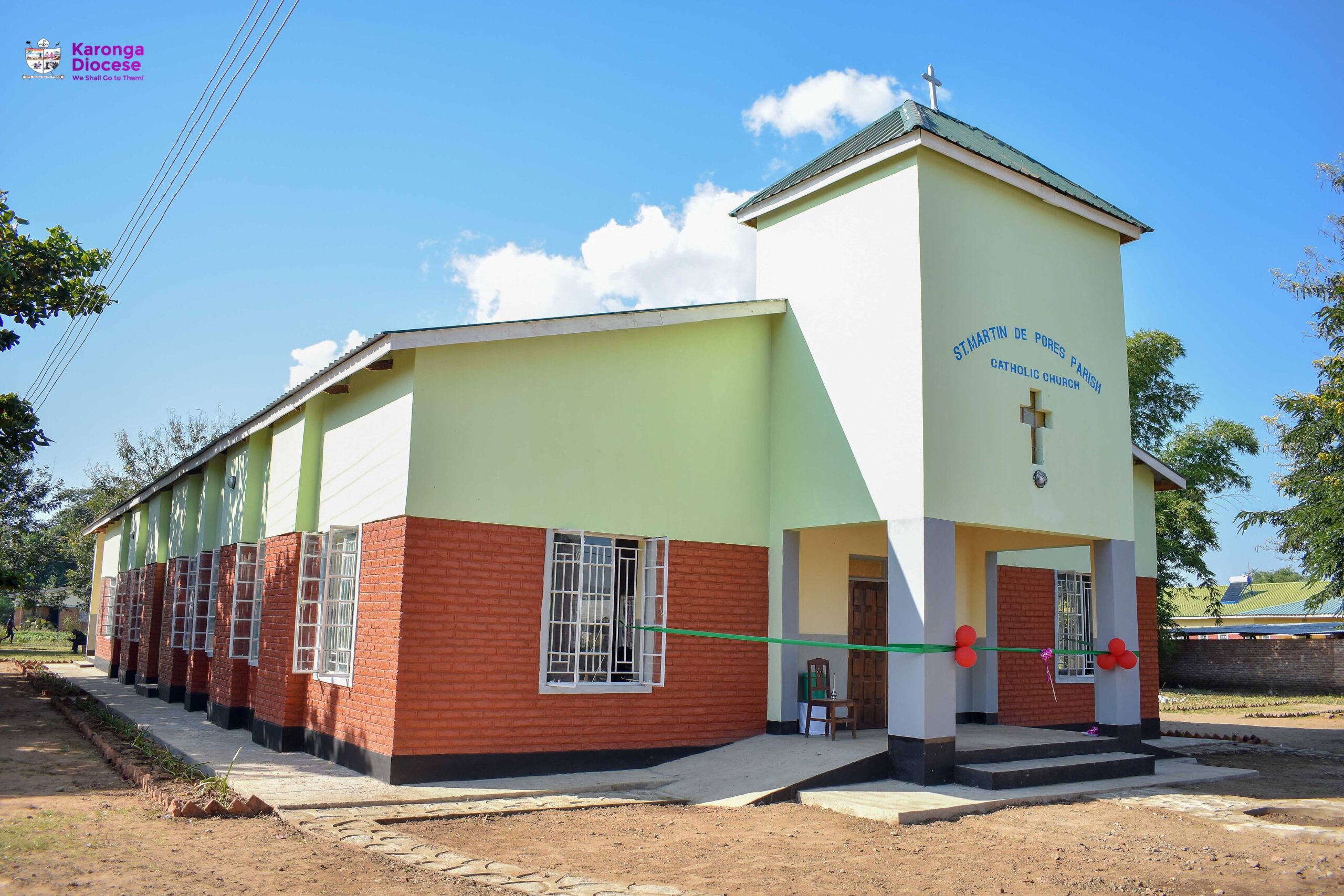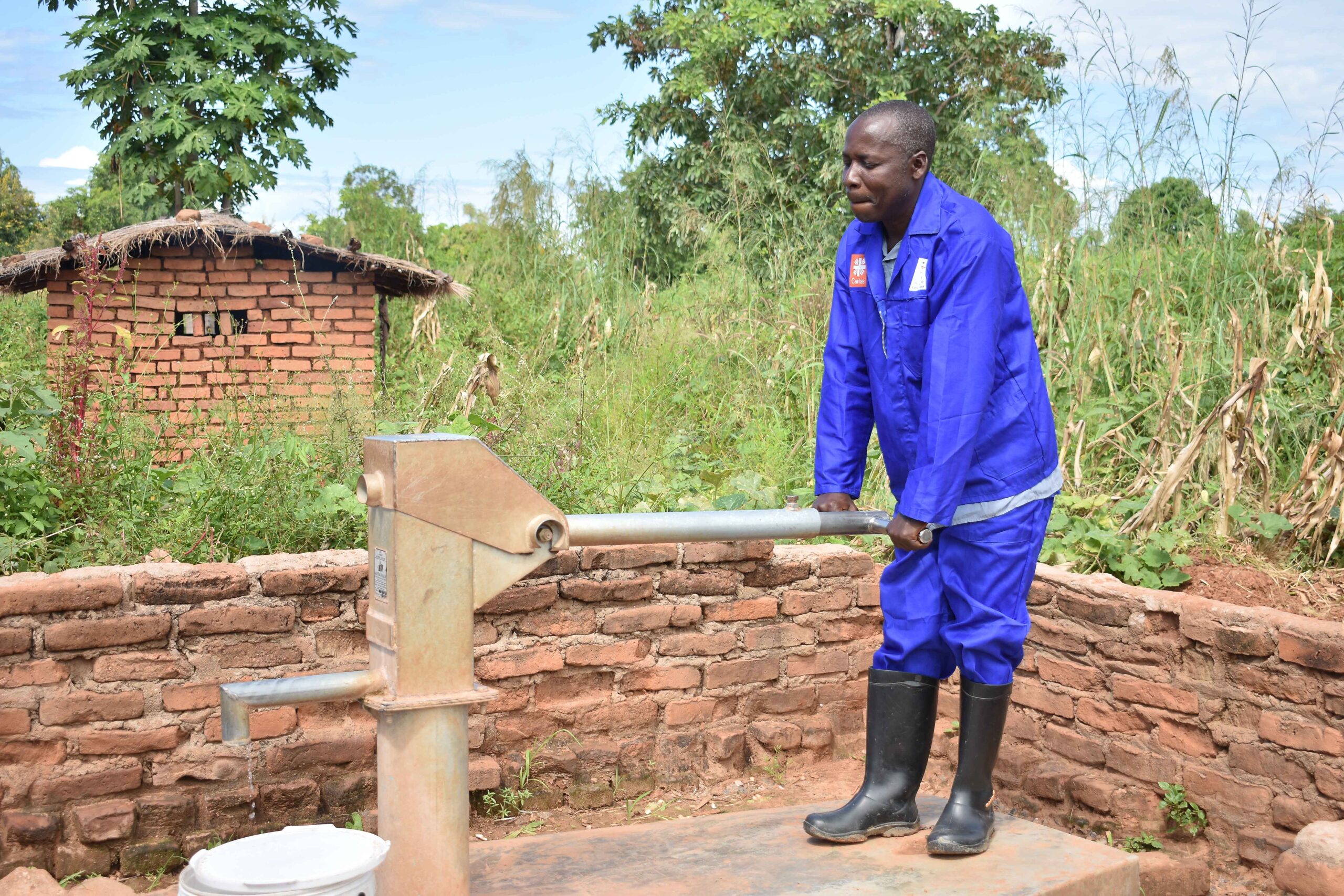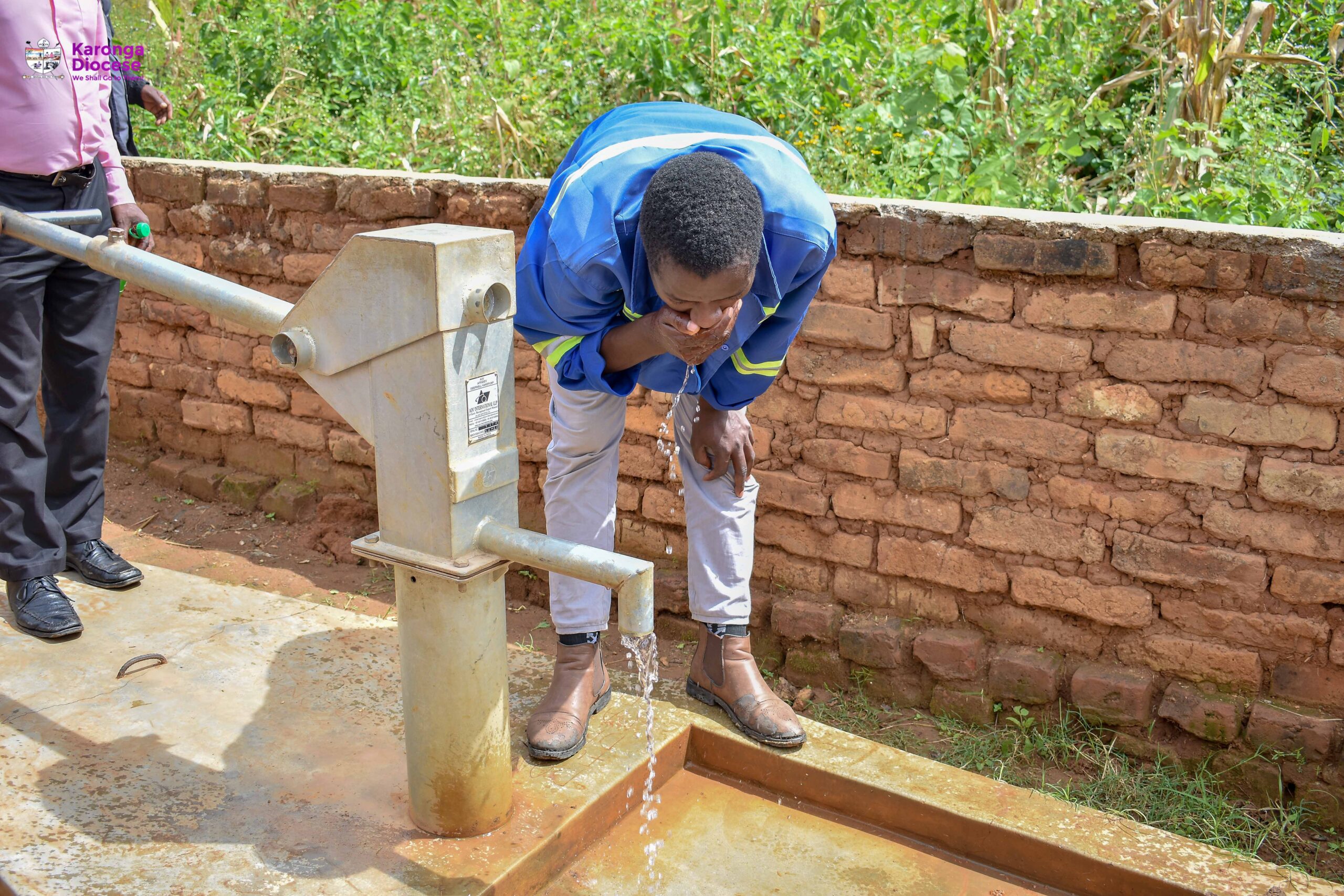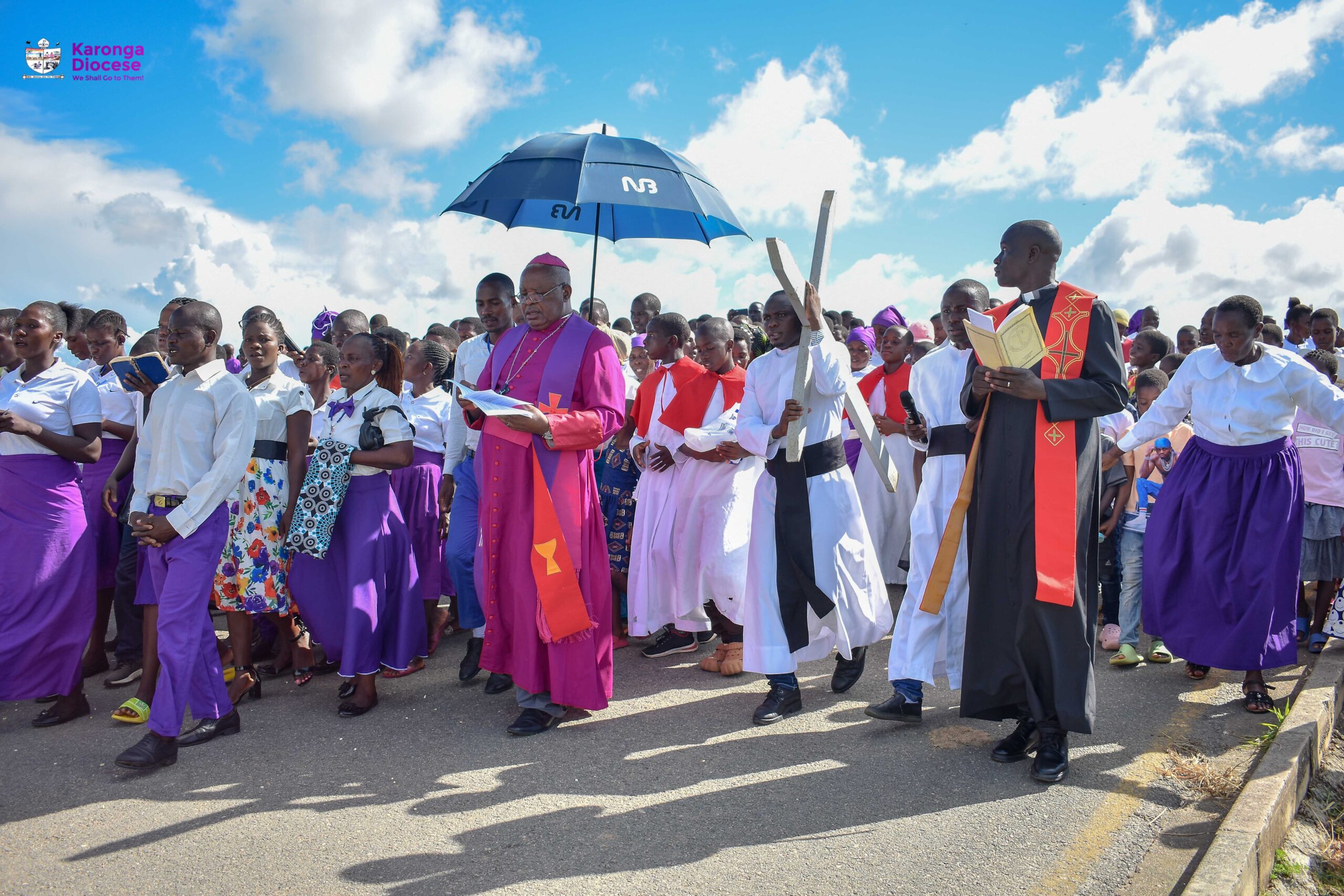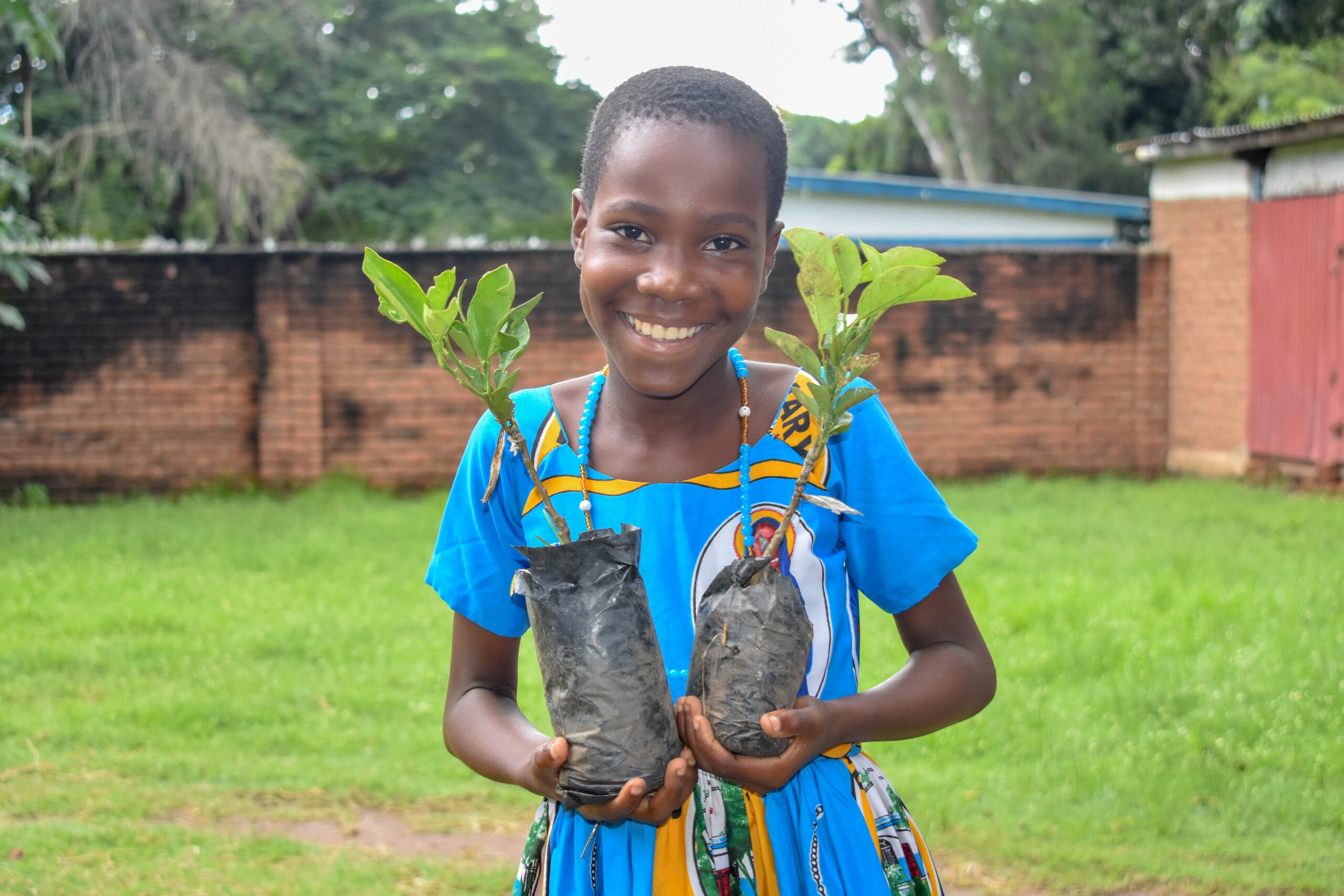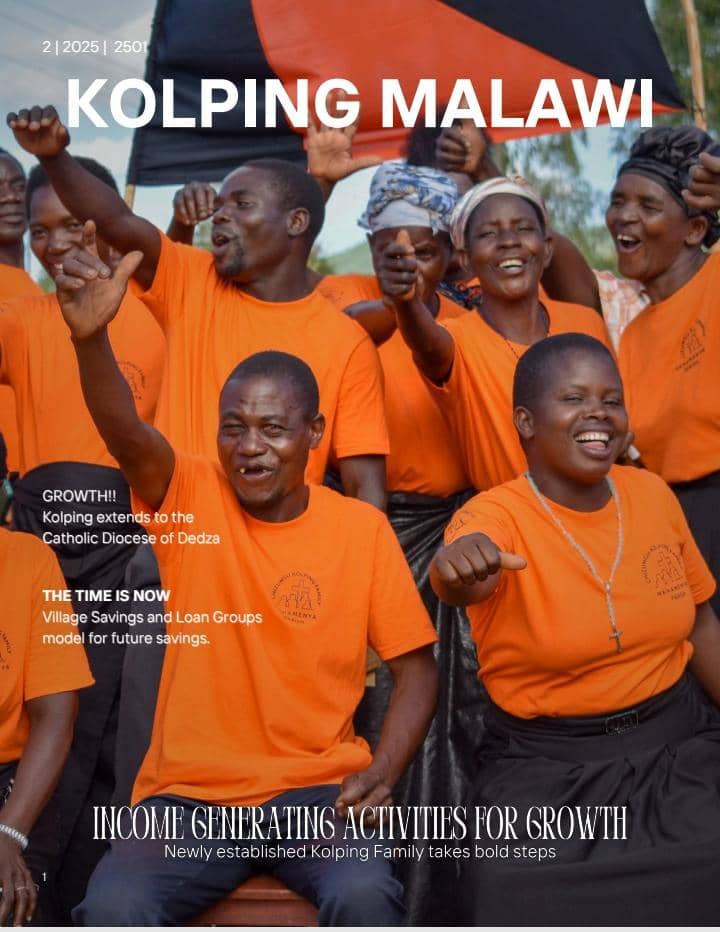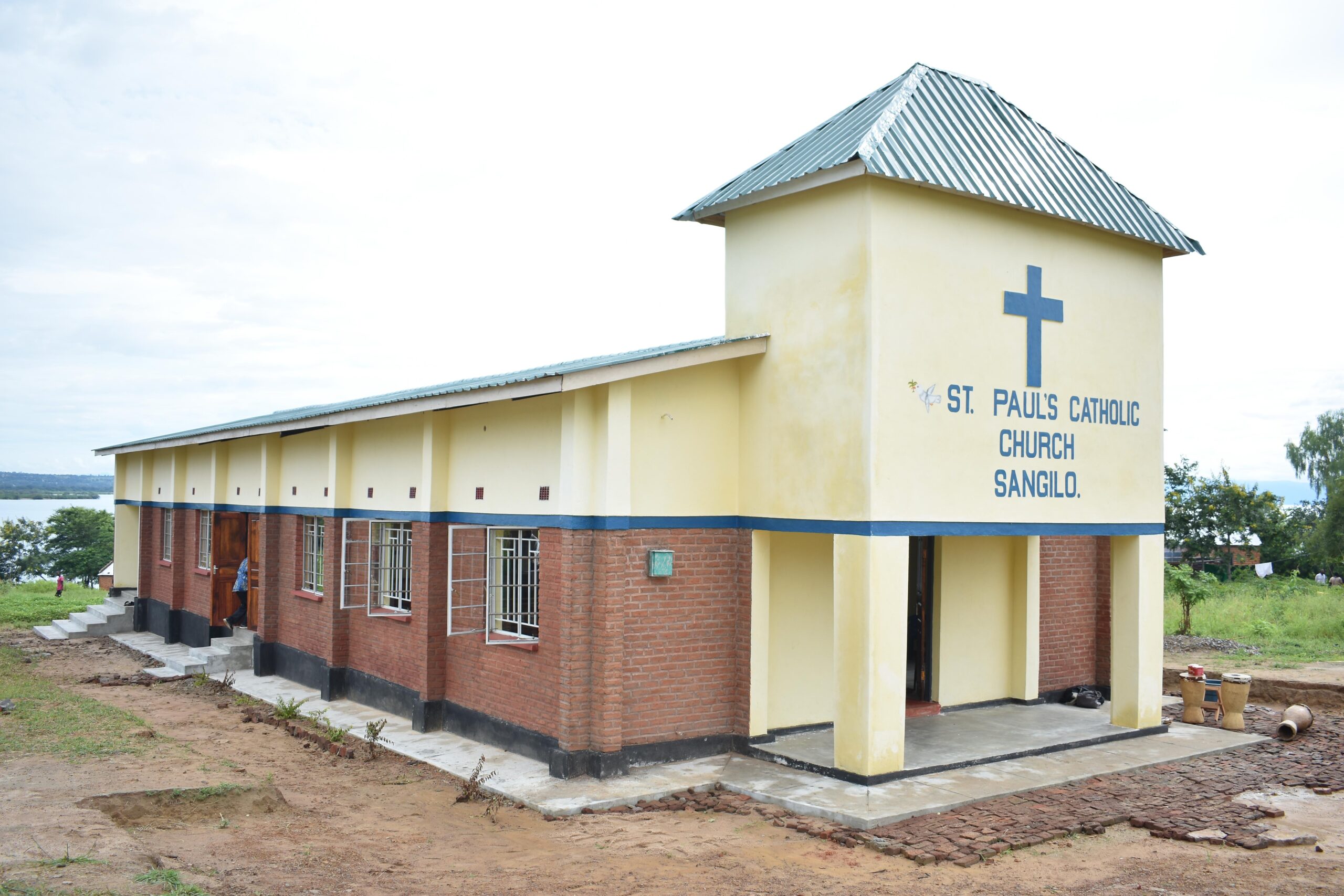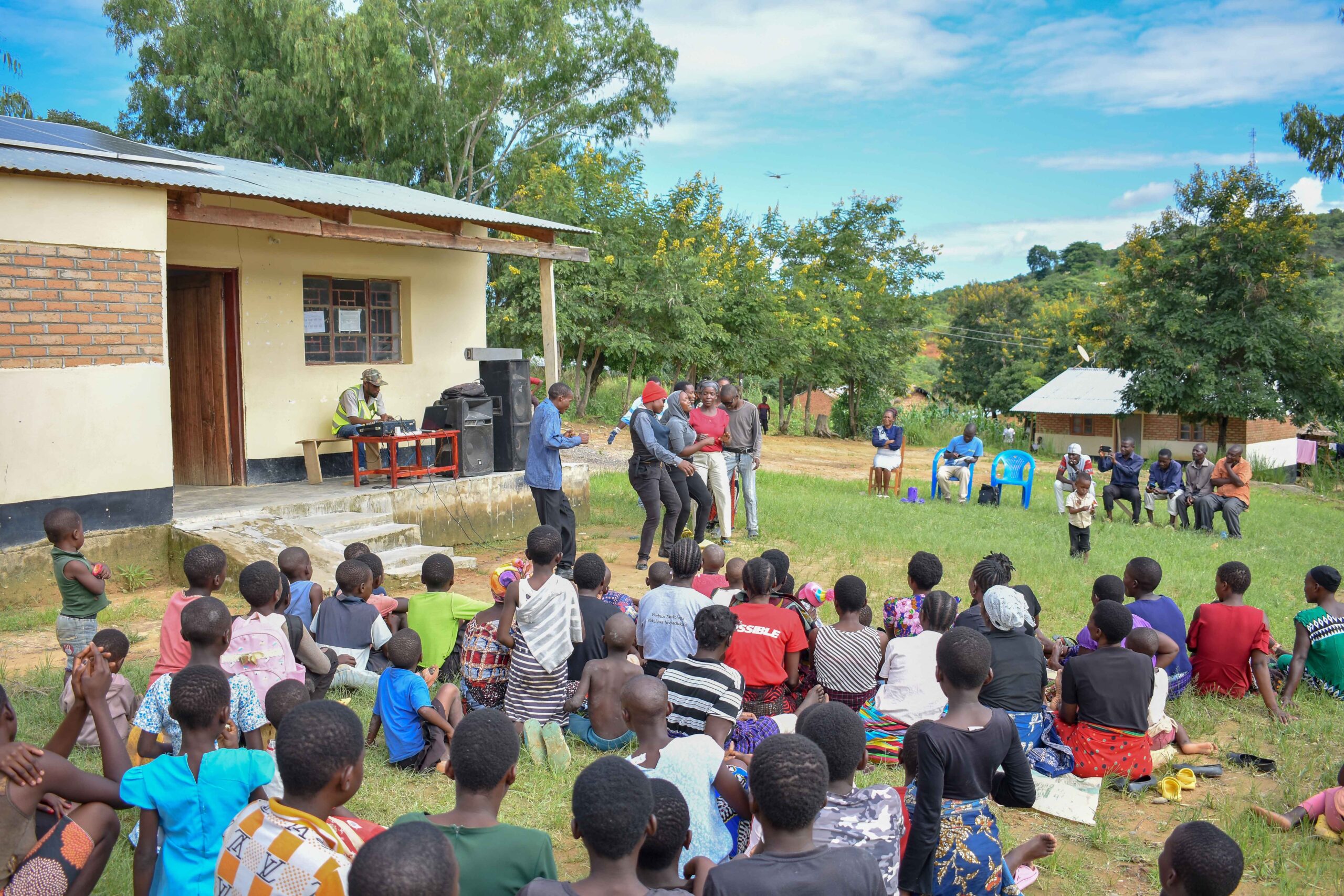NEWLY BUILT ST. MARTIN DE PORES PARISH CHURCH DEDICATED AND CONSECRATED
By Noel Chatepa There is joy in Ngerenge Karonga as the newly constructed St. Martin De Pores Parish Church has been officially consecrated and dedicated on June 29, 2025, on the Feast of Peter and Paul. The dedication and consecration...
Read MoreEMPOWERING RURAL COMMUNITIES THROUGH BOREHOLE AREA MECHANICS: THE STORY OF DAVIE MWANGOSI
By Noel Chatepa In many rural communities across Malawi, access to clean water is a daily struggle especially in situations where a borehole, which is the primary water source, breaks down. In such situations, communities have to wait for government employed borehole mechanics to...
Read MoreCHITIPA DCT COMMENDS KARONGA DIOCESE’S CT WASH PROJECT: SUSTAINABLE WATER & SANITATION IN GVH KOPAKOPA
By Noel Chatepa Officials from Chitipa District Coordinating Team (DCT) say they are impressed with the interventions being implemented in the Karonga Dioceses’ Community Transformation (CT) Water, Sanitation and Hygiene project being implemented in GVH Kopakopa, T/A Nthalire in the...
Read MoreBISHOP MTUMBUKA URGES CHRISTIANS TO REMEMBER THEIR BAPTISMAL PROMISES
By Noel Chatepa On Friday, 18th April 2025, the Bishop of the Diocese of Karonga, His Lordship Martin Anwel Mtumbuka, led The Way of the Cross procession at Ntchowo Outstation in St. Thomas Moore Parish. The Way of the Cross commemorates...
Read MoreBISHOP MTUMBUKA PRESIDES OVER HOLY THURSDAY MASS
By Noel Chatepa Bishop Martin Anwel Mtumbuka of the Diocese of Karonga has urged Christians to go out and cleanse the hearts of others taking after Jesus' gesture of washing the feet of his disciples. Some of the faithful from...
Read MoreKARONGA DIOCESE CURIA STAFF EXTEND LENTEN SEASON COMPASSION TO ST. MARY’S RESOURCE CENTER FOR THE VISUALLY IMPAIRED
By Wezzie Mwangonde Karonga Diocese Curia staff have donated essential items to St. Mary’s Resource Center for the Visually Impaired, as the Church’s commitment to serving the marginalized during the Lenten season. Speaking during the handover ceremony, Sister Cecilia Chiumia,...
Read MoreKARONGA DIOCESE DISTRIBUTES FRUIT TREES TO PROMOTE NUTRITION AND CARE FOR THE ENVIRONMENT
By Noel Chatepa The Diocese of Karonga recently distributed fruit tree seedlings to various Christian movements in the Diocese in an effort to support the nutrition of children while adhering to the Catholic Social Teaching of Caring for God’s Creation. This project was...
Read MoreKOLPING SOCIETY OF MALAWI NEWSLETTER
Kolping Society of Malawi has released a newsletter which highlights some of the milestones achieved so far. You can download the views letter via the following link: KOLPING SOCIETY OF MALAWI NEWS 2025Download
Read MoreST. PAUL’S CHURCH (SANGIRO) CONSECRATION: BISHOP MTUMBUKA URGES CHRISTIANS TO EMBRACE FAITHFULNESS AND OBEDIENCE
By Noel Chatepa On 25th March 2025, a significant milestone was achieved for the Catholic Diocese of Karonga as Bishop Martin Anwel Mtumbuka presided over the Dedication, Consecration, and Blessing of the newly built St. Paul’s Catholic Church in Sangilo....
Read MoreKARONGA DIOCESE COMMUNITY TRANSFORMATION WASH PROJECT CONDUCTS WATER SANITATION AND HYGIENE SENSITIZATION EXERCISES
By Noel Chatepa The Karonga Diocese Community Transformation Project conducted vital Water Sanitation and Hygiene (WASH) sensitization exercises from 17th to 21st March 2025 in the communities of Jalawe (Rumphi) and Chankholombe (Karonga). The sensitization exercise aimed to educate and remind residents on...
Read More
